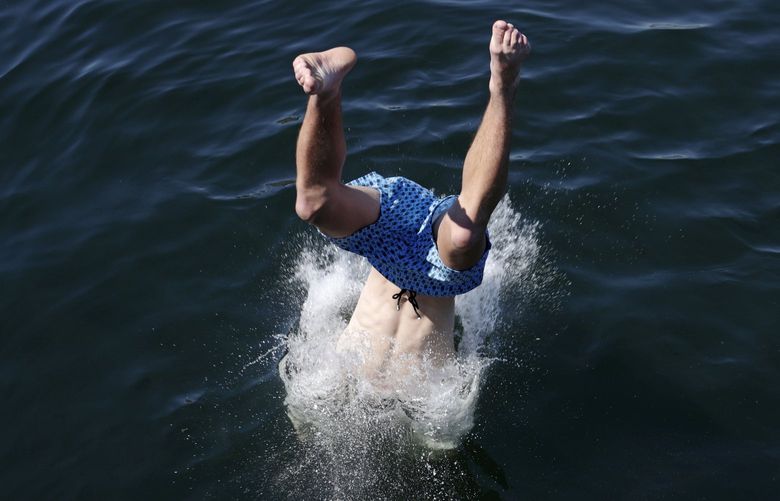With Seattle in for its first heat wave in nine months, it’s been a while since residents have had to keep cool under clear skies and hot sun.
Weather forecasters predict Seattle will get into the mid- to high 80s this Saturday through Monday.
Staying indoors out of the sun, using either a fan or air conditioning system, and keeping hydrated are three good steps to take this weekend, said Matthew Cullen, a National Weather Service meteorologist in Seattle. He also recommended wearing light clothing that doesn’t trap heat.
Cullen said taking extra care of infants, children and older adults is especially important during a heat wave, as their bodies may not be fully equipped to respond to the heat.
Unlike last summer’s record-breaking heat spells, temperatures this weekend are expected to cool down once the sun sets. Cullen recommended cracking open windows at night, to circulate cool air, and closing them in the morning before heat seeps indoors.
It can be tempting to jump into a lake or river to cool off this weekend — but water temperatures can be colder than expected and even cause your body to go into cold-water shock.
When your body is submerged in cold water, it accelerates your heart rate to keep you warm. That can cause a number of bodily responses, including hyperventilation — even for experienced athletes.
“It can be very deceiving how quickly you lose your ability to swim out or recover from that,” Cullen said. “Unfortunately, it happens every year. Children are especially at risk because they don’t have the physical strength, and their body starts to react to the cold water, and they just can’t recover as quickly.
If you’re looking to stay cool by natural waterfronts, check out these outdoor recreation options. If you do head to the water to cool off, prepare with these safety tips for lakes, rivers and beaches.
Cullen added that those doing manual labor jobs outdoors, who are likely accustomed to working in the cold and rain over the past few months, are also at risk if they don’t up their hydration and take breaks.
It’s important to know the signs of heat illness.
Signs of heat exhaustion include feeling faint or dizzy, excessive sweating, cool and clammy skin, nausea, a rapid weak pulse and muscle cramps. Treat heat exhaustion by moving to a cooler, air-conditioned place, drinking water and taking a cold shower or using a cold compress.
If untreated, heat exhaustion can develop into heatstroke. Officials recommend seeking immediate medical attention by calling 911, moving to a cooler place and use cool cloths or a bath to cool down. Symptoms include a body temperature above 103 degrees, throbbing headache, confusion, lack of sweating, hot dry skin, nausea or vomiting, a rapid strong pulse and a loss of consciousness.
Take a few precautions to keep pets safe too. Don’t overexert animals in hot weather, protect those paws and provide clean, cool water as well as shade and a cool place to rest.
If a pet becomes overheated, apply cold towels to the animal’s head, neck, groin and chest. Contact a veterinarian immediately if you see signs of a heatstroke: Excessive panting, dark or bright red tongue and gums, staggering or stupor, seizures, bloody diarrhea, vomiting and body temperatures of 104-110 degrees.
For more information on how to beat the heat and to stay safe, visit: st.news/heatguide.
Material from The Seattle Times archives is included in this report.

The opinions expressed in reader comments are those of the author only and do not reflect the opinions of The Seattle Times.